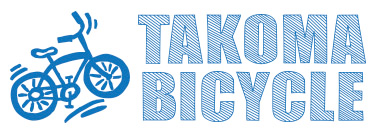
Zip between classes or downtown to meet friends—without ever paying for gas or worrying about parking.
Chances are good the only vehicle you need on your college campus this year is a bicycle. The average college campus is all-inclusive or close to downtown. This means everything you need access to is within walking—and riding—distance. After all, having a car on campus means finding parking, paying for gas, and many more hassles. Not to mention the fact that many colleges don’t allow first-year students to keep a car on campus. There are a few things to consider when choosing the best bikes for college students. Finding the right bike will help you cut travel time between classes, run errands faster, and maybe even meet new friends—all while keeping that freshman 15 at bay.
What Kind of Gearing Do You Need?
The range of gears you need will depend on where your campus is located. If it’s nestled in a mountainous area where everything you do is uphill (in both directions), look for something with multiple gears. On the contrary, if you’re furthering your education in a mostly flat town, consider a simple singlespeed or a bike with a 3-speed internal hub, both of which cut down on maintenance. If your campus is sprawling, hilly, somewhere hot, or all three, an e-bike can be your ideal companion for zipping along with little effort (just remember, this means you’ll have a battery to keep charged).
Fenders and Racks Make Everything Better
For rainy-day commutes or winter storms that leave slush on the road, fenders are a must-have. Otherwise you might stroll into the lecture hall with a stripe up your rear. When shopping for fenders, be sure to get a set that fits your wheel size and tire width. As well, racks are a godsend when you have a stack of books a mile high. Better to strap them to a front or rear carrier than to weigh down your backpack.
A New Bike may be the way to go
There is nothing better than going to a professional bike shop in order to secure not only a warranty of service, but also to guarantee the quality and reliability of something that may very well replace your car or take you off of crowded buses.
Buying a new bike is good idea, even though the initial investment is higher than buying used. Bike shops want to get you on a bike that not only fits you in size but also in needs for utility and price. Buying a bike blind is not recommended. You want to be able to compare and contrast models and materials in order to see what feels "right" to you. It is also not suggested you buy your bike online. You want to know your bike has been built well.
Shops also have wide varieties of accessories and can facilitate the installation and care of these many add-ons to the bike.
Whatever the bike, fit is key
The importance of bike fit cannot be overemphasized. A bike that does not fit is bad for the body and even worse for morale. There is nothing worse than being very tired and worn out from riding a bike that fits poorly. A bike that fits is confidence-inspiring as well as a great tool to improve health of body and mind. A bike ride is a therapeutic unwind, even when it’s to or from a place of work or stressful class.
Protect Yourself and Your Bike
Make sure to leave room in your budget for essentials, like a helmet, lights, and a lock. You'll want to get a lock that seems like overkill. Some experts recommend spending 20% of the cost of your bike on a lock. A lock is what insures that your investment remains YOUR investment. A bell is a bonus for warning others that you’re approaching, especially on days when you’re late to class and passing people on the path. And do yourself a favor by registering your bike’s serial number with your school and/or municipality, which might help you get it back should it ever grow legs.


